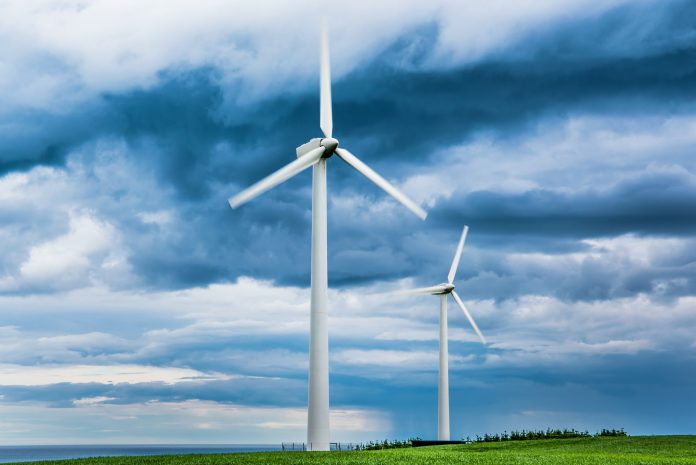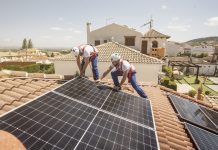Open Access Government explores the priorities of the Department for Business, Energy, and Industrial Strategy for ensuring that the UK has secure energy supplies that are reliable, affordable, and clean
As we recover from the COVID-19 pandemic, we are seeing Governments, business, and civil society across the world uniting in their calls for climate action. The economic fightback against COVID-19 goes hand in hand with addressing the climate crisis, as there is a need for the economy to “build back and build back greener.” (1) This is according to the Rt Hon Alok Sharma, who was appointed Secretary of State for Business, Energy, and Industrial Strategy at the beginning of 2020, and was also appointed Minister for COP 26, the 26th United Nations Climate Change Conference, at the same time. The UK will host the COP26 Summit in 2021. In the June COP26 Business Leaders Event, Sharma addressed that “in the UK, working with business, we have shown that green growth is absolutely possible. Between 1990 and 2018, the UK economy has grown by 75% and at the same time, we have managed to cut emissions by 43%.” (2)
This is not the only stride that has been made by the UK in recent years. New climate finance data published in August 2020 showed that since 2011, UK aid investment has provided 33 million people with improved access to clean energy, including connections to off-grid renewable energy sources, access to solar lanterns and clean cookstoves. Furthermore, the UK has Installed 2000 MW of clean energy capacity, equivalent to the capacity of 454 average-sized UK offshore wind turbines, among other feats.
The 2020 priorities for ensuring that the UK has reliable, affordable and clean secure energy supplies consist of ramping up “ambition towards a climate-resilient, zero-carbon economy” and also “all nations committing to reaching net-zero emissions as soon as possible”. (3)
Achieving UK goals
In addition to raising ambition, COP Presidency will focus efforts on five areas which need attention to achieve the UK’s goals, and the UK is acting in each of these areas. These are:
• Clean energy: In energy, making the most of the low costs of renewables boosts growth and creates jobs. Investing in zero-emission transport in a coordinated way can accelerate the transition to cleaner air. By incorporating adaptation and resilience into recovery plans, the UK can better prepare for the next crisis while supporting the global economy.
• Nature-based solutions: By protecting and restoring nature, we can improve the resilience, sustainability, and the economics of agriculture.
• Clean Transport.
• Adaptation and resilience.
• Finance: Underpinning everything.
A collaborative approach
Furthermore, collaboration is invaluable to achieve goals in each of these areas. In July, the UK announced a plan to invest the equivalent of over 5.5 billion New Zealand dollars into improving the energy efficiency of homes and public buildings in 2020/21, including almost NZ$2 billion in the transition to electric vehicles, and committing to doubling the UK’s international climate finance contribution to NZ$22 billion over the period 2021 to 2025.
Collaboration should pave the way, not just across countries, but also across sectors. Sharma also wants to highlight the importance of businesses, how they have already played a crucial role in the clean energy transition, and how they can continue this. He is therefore urging all businesses to join the Race to Zero Coalition. Recently, he called upon tradespeople across England to step forward and sign up to be able to offer services through the government’s new £2 billion Green Homes Grants scheme, and over 1,000 businesses across the country have already applied to do so far. The scheme will cover green home improvements ranging from the insulation of walls, floors, and roofs, to the installation double or triple glazing when replacing single glazing, and low-carbon heating like heat pumps or solar thermal. These are measures that could help families save up to £600 a year on their energy bills. He stated, “The Green Homes Grant scheme will not only cut emissions and make a serious dent in people’s energy bills, but will create new work for many thousands of talented builders, plumbers and other tradespeople right across the UK.” (4) He further highlighted that the business community is collectively aware that building a green economy is not just beneficial for this environment but also good for business itself, and, according to the 2020 report for heat, energy efficiency, smart technology and health review, will hugely impact the general health and wellbeing of everyday citizens and homeowners everywhere.
Ultimately, working together is at the heart of commitment to cleaner energy and a zero-carbon economy as Sharma stresses. He recently further urged more companies to commit to 100% renewable sources by 2050 at the latest, through the RE100 initiative and the Powering Past Coal Alliance. “We share one life-giving but incredibly fragile planet, so it is imperative that we work together, in the aftermath of the coronavirus, and ahead of COP26, to build back better.” (5)
References
https://www.gov.uk/government/speeches/cop26-president-alok-sharma-at-cop26-business-leaders-event
https://www.gov.uk/government/news/businesses-urged-to-sign-up-to-offer-green-homes-improvements
https://www.gov.uk/government/speeches/lets-build-back-better











